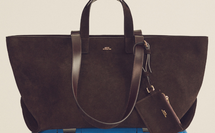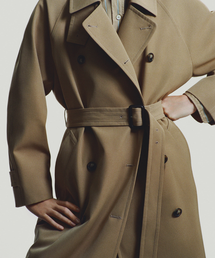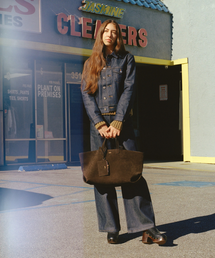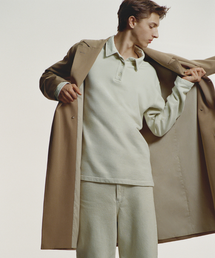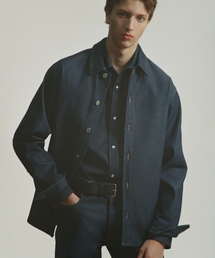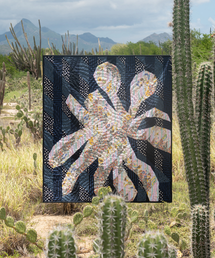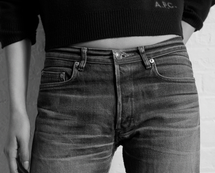CARTE BLANCHE - RWANDA

For its new collection, A.P.C. handed over the reins to a group of photographers, inviting them to offer their own take on the collection. No creative brief, no fixed location, no styling guideline: just complete freedom. Each photographer chose their own destination, their own light, their own mood. The idea was to see what the collection could become when placed in another context, through another lens. The result is a series of distinct, often surprising images - sometimes personal, always free - that let the clothes speak for themselves. It’s a way for A.P.C. to open up new conversations, explore unfamiliar ground, and stay true to a clear, consistent vision: trust the eye, and trust the pieces.
For its second Carte Blanche, A.P.C. invited photographer Paw Gissel to capture a selection of accessories, freely and far from any stylistic exercise. He chose to shoot in Rwanda, among the hills between Kigali and Shyira. A setting that’s anything but a backdrop: powerful landscapes, dense vegetation, vivid colors that seem to give the objects a quiet depth.
A Danish photographer and art director based in Paris, Paw Gissel works at the intersection of documentary and visual study, where observation takes precedence over staging. He explains: “Rwanda is a place of quiet strength. From the rhythm of Kigali to the long, undulating landscapes of Shyira—rich in volcanic soil and every shade of green—life here feels elemental, grounded in community. This was a short journey, and the approach was simple: to lean into what was already there. I didn’t want to stage much. Just observe. These scenes felt naturally in tune with A.P.C.’s design ethos—functional, direct, and never overworked.”
Gissel worked with the everyday elements already in place. No imposed narrative. Just objects in a setting, captured in relation to the real, with minimal styling by Pierre-Alexandre Fillaire. A series of impressions, somewhere between a travelogue and a formal study, where only presence matters: that of the place, the people, and the pieces. Nothing spectacular. As if everything was already there.
To extend this visual immersion, explore the essential pieces from our Men’s and Women’s sections.
















